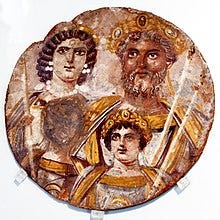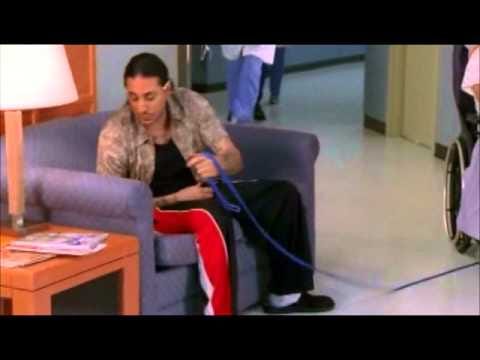"Then hunger did what sorrow could not do": Happy Father's Day From Count Ugolino and his Sons in the Tower
sorry it's about Father's Day

I’ve spent the last six weeks half-convinced each upcoming Sunday is supposed to be Father’s Day — it’s one of those unfixed-feet wandering holidays I can never quite remember — and end up getting all wound up on a Saturday afternoon for nothing. I thought I’d feel prepared, or at least quippy, by this week. Forewarned is forearmed. And I’ve been revamping all those distressing Bible anecdotes about wheels and bones, spending three consecutive days a week in therapy since January. Surely I’m due to see some return on my investment. But I have today no peace of mind, no sangfroid, no resilience.
I think: The last time I spoke to my father, he told me the man he’d been secretly and unofficially treating for pedophilia by encouraging him to work with children was “a hero. The last time I spoke to my father, when I suggested this man should stop working with children and start seeing a therapist, he accused me of trying to “ruin his life.” Then: My father issued a proxy to address his congregation who said that trans people are deluded, suicidal, and in need of Jesus. I think: Those things cannot possibly be true. They cannot all have happened, they cannot all have happened this year, they cannot all have happened in my life. I think: My father used to say he loved me all the time. I think: My father would not do that to me. So often I say to myself, My father would never do that to me. The question follows: What are the things your father would never do? The question follows: What are the things your father is capable of? The question follows: If you didn’t know this, why should you trust your own knowledge of your father? And then I think: Sylvia Plath wore this territory out, and better, a while back. And then I think: There’s a reason I avoided fatherliness in my work for so long. And then I think: Well, that didn’t work. Finding the concept of father issues tiresome is no protection against them, as it turns out. And then I think: Did I find them tiresome, or was I terrified? Against my father I have no resilience, just like everyone else.
Dear John Mayer,
For the lyrics “Fathers be good to your daughters / Daughters will love like you do,” the Council of Wronged Transmasculine Sons find you utterly guilty. We do urge you to repent before we kill you.
I think of the things my father has: The same job he had six months ago, the same million-dollar inspirational Christian book deals, the exclusive support of every blood relative we share between us, a healthy grandson, a Labrador retriever, the exclusive loyalty of my mother, an obedient eldest daughter, a dependent youngest son, a pleasant singing voice (a light but un-reedy tenor), proxies, cronies, collaborators, assistants, teams, networks, a thundering velvet hand, a devoted congregation quick to pity, the consolation of many loyal friends, pastoral authority, remit, a parking space at church reserved specially for him.
She loved me for the dangers I had passed,
And I loved her that she did pity them.
This only is the witchcraft I have used.
One of the most contested lines in the Inferno comes at the conclusion of Count Ugolino’s tale: “Poscia, più che ‘l dolor, poté ‘l digiuno.”
Then hunger did what sorrow could not do
Then fasting more availed than sorrowing
Then famine silenced my grief by death
Till famine, more severe / Than grief itself, and more alert to kill, / In three days more concluded my career
“Did Dante intend to say that although grief did not kill him, hunger did so? Or was he implying that hunger overcame the reticence of grief and sorrow, driving Ugolino to eat the flesh of his deceased offspring before he, himself, died?”
“And I heard locking up the under door
Of the horrible tower; whereat without a word
I gazed into the faces of my sons.
I wept not, I within so turned to stone;
They wept; and darling little Anselm mine
Said: 'Thou dost gaze so, father, what doth ail thee?'
Still not a tear I shed, nor answer made
All of that day, nor yet the night thereafter,
Until another sun rose on the world.
As now a little glimmer made its way
Into the dolorous prison, and I saw
Upon four faces my own very aspect,
Both of my hands in agony I bit;
And, thinking that I did it from desire
Of eating, on a sudden they uprose,
And said they: 'Father, much less pain 'twill give us
If thou do eat of us; thyself didst clothe us
With this poor flesh, and do thou strip it off.'
I calmed me then, not to make them more sad.
That day we all were silent, and the next.
Ah! obdurate earth, wherefore didst thou not open?
When we had come unto the fourth day, Gaddo
Threw himself down outstretched before my feet,
Saying, 'My father, why dost thou not help me?'
And there he died; and, as thou seest me,
I saw the three fall, one by one, between
The fifth day and the sixth; whence I betook me,
Already blind, to groping over each,
And three days called them after they were dead;
Then hunger did what sorrow could not do.”
When he had said this, with his eyes distorted,
The wretched skull resumed he with his teeth,
Which, as a dog's, upon the bone were strong.
In November of last year my father ate me alive. My father has strong teeth like a dog’s. Do you remember the episode of One Tree Hill where a dog eats Dan’s heart before he can get a transplant? It was like that, and I have no body now. My father has so long to live, two hearts, and I am old, old old. My father love love loves G.K. Chesterton, who wrote:
Because children have abounding vitality, because they are in spirit fierce and free, therefore they want things repeated and unchanged. They always say, “Do it again”; and the grown-up person does it again until he is nearly dead. For grown-up people are not strong enough to exult in monotony. But perhaps God is strong enough to exult in monotony. It is possible that God says every morning, “Do it again” to the sun; and every evening, “Do it again” to the moon. It may not be automatic necessity that makes all daisies alike; it may be that God makes every daisy separately, but has never got tired of making them. It may be that He has the eternal appetite of infancy; for we have sinned and grown old, and our Father is younger than we.
My father never gets tired, my father is always hungry, my father is making daisy chains and he is not tired, I am not strong, I am nearly dead from repetition, the sun does not do what I tell it to, the moon is not listening to me, my father is abounding, my father is free, my father and children, my father and children, my father wants children repeated and unchanged, my father says “Do It Again” at me and I feel nearly dead. Christ, what an asshole.
It is a little funny. Eat your heart out.
[Image via]



